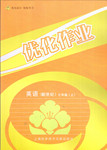题目内容
Mr Adamson enjoys playing the violin in his spare time. He is often carried away(着迷)by his own_______But it is a______time for his neighbors when Mr Adamson plays the violin, as he_____so badly.
One day Mr Adamson sat by a _____and began to play the violin as usual. Mr Adamson seemed to be making ____ instead of music, but he was so______that he almost forgot what he was doing. Just __, some stones were thrown out of the windows under______Mr Adamson was sitting, ___ he did not pay any attention to it. The “music”_____ After a little while, an empty bottle and a worn-out shoe were thrown out of the window,_____. Only then did Mr Adamson know this was not the place for him to play in. Mr Adamson was very______ He thought, “____no living people can understand my music, I should go to a place where people may appreciate(欣赏)my works.” So he ____ to go to a graveyard(墓地).
He came to a graveyard where there was no other ___ except the church bell. Mr Adamson sat at a grave and thought_____, “I must do my best to _____that my music is outstanding(出色的).” The more he thought, the more inspired(激动)he was, and ____he began to play his violin. Suddenly a barefoot(赤脚) stretched(伸)out from the graveyard and gave him a heavy _____which sent him flying. His violin also dropped from his hand. Mr Adamson felt very sad ____ his works were not accepted by anyone, not even the dead.
1.A. voice B. music C. noise D. sound
2.A. terrible B. useless C. wonderful D. long
3.A. sings B. shouts C. dances D. plays
4.A. house B. door C. window D. wall
5.A. sound B. something C. noises D. voice
6.A. excited B. angry C. lovely D. pleased
7.A. that B. right C. now D. then
8.A. which B. it C. that D. where
9.A. and B. but C. so D. For
10.A. stopped B. began C. played D. continued
11.A. together B. slowly C. too D. again
12.A. happy B. sad C. glad D. pleased
13.A. Unless B. As if C. As D. Before
14.A. decided B. said C. thought D. knew
15.A. voice B. building C. thing D. sound
16.A. anything B. his music C. a lot D. hardly
17.A. prove B. tell C. explain D. mean
18.A. first B. second C. finally D. third
19.A. kick B. boxing C. push D. shoe
20.A. until B. and C. because D. so
 培优三好生系列答案
培优三好生系列答案 优化作业上海科技文献出版社系列答案
优化作业上海科技文献出版社系列答案

 ker its voice and identity.
ker its voice and identity.